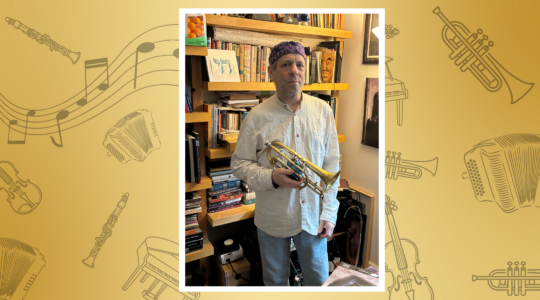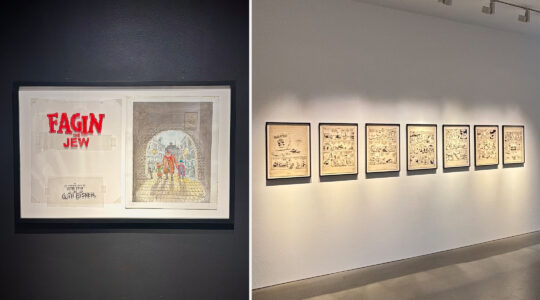Autism spectrum disorder is a complex group of neurodevelopment disorders characterized by a repetitive and characteristic patterns of behavior, and difficulties with social communication and interaction. The symptoms are present from early childhood and affect daily functioning; within the spectrum, those affected may range from children and adults who are able to perform the functions of daily life to others who are unable to perform even the most basic tasks without substantial assistance.
The eighth edition of the ReelAbilities Film Festival, which opens Thursday, March 10 for a weeklong run at the JCC Manhattan and 40 other venues (reelabilities.org), wisely includes several short films about autism, spanning a range of narrative styles. The result is a glimpse into the array of disorders subsumed under the diagnosis of ASD.
“Short films get overlooked, but sometimes they’re the stars,” said Isaac Zablocki, the festival’s director and co-founder. “Every year we get outstanding animation and live-action shorts, and they give you a nice compilation of everything. You get to see a few different kinds of film styles, learn about different disabilities.”
In recent years autism has moved front and center in terms of public awareness, not just at ReelAbilities but in the larger population as well.
“Autism stands out,” Zablocki says. “It’s about people who express themselves differently. It highlights that in a way that’s very understandable, that people can relate to. It’s a topic that, by its very nature, shows its humanity. And the rising numbers [of diagnoses] make it very close to our hearts.”
Among this year’s films, four shorts about autism are particularly compelling. “Little Hero,” directed by Marcus A. McDougald and Jennifer Medvin, profiles Medvin’s 6-year-old twins Xander who is autistic, and his sister Avery, who is not. The film offers Avery an opportunity to talk about (and for) her brother, which she does with a wisdom far beyond her years. “I think Zander sees the world different from me,” she says, but she could say she same for her mom and McDougald, whose quirky blend of animation and documentary gives the film an appealing flair.
“Bumblebees,” which Zablocki says is one of the pre-festival favorites, is also a family affair, with Jenna Kanell offering a charming portrait of her brother Vance. He is an autistic 19-year-old who was told at age 4 that he would never walk or speak. As the film whimsically demonstrates, he has defied that prediction and is now moving on to a more daunting challenge: dating. With sound advice from his cat Goldie, Vance prepares for his “first first” date.
“Chimes for Tyler,” directed by Stephen Panaggio, profiles Tyler Doi, a Toronto-based 8-year-old with autism, who has become obsessed with wind chimes, particularly the elegant products of Woodstock Chimes. His fascination with the company’s output inspired Garry Kvistad, the Grammy-winning musician who founded the firm, to become involved in fundraising for autism.
The 14-minute “Jesse,” directed by young Canadian filmmaker Adam Goldhammer, features stunning performances by Hannah Anderson as the 22-year-old sister of, and sole caregiver for, the title character, and Jake Epstein, who plays him. Based on Goldhammer’s relationship with his sister, “Jesse” is a tough-minded film that shows the harrowing emotional demands of having a sibling with a disability.
Three of these four films were made by people who have experienced autism directly in their own families, a fact that points to one of the most interesting developments Zablocki and his colleagues are discovering.
“There are a lot of first-person expressions about disability now,” the festival head explains. “There’s been a growth in general in film and video, thanks to the increasing accessibility of digital equipment.
Last year’s festival received 300 submissions, Zablocki notes. This year, the number soared to over 1,000.
“There’s a movement, and it’s starting to grow,” he concludes. “There was a great deal of discussion about diversity and minority access surrounding this year’s Oscars, and justifiably so. But the largest minority in the country, people with disabilities, wasn’t mentioned at all.”
The New York Jewish Week brings you the stories behind the headlines, keeping you connected to Jewish life in New York. Help sustain the reporting you trust by donating today.




